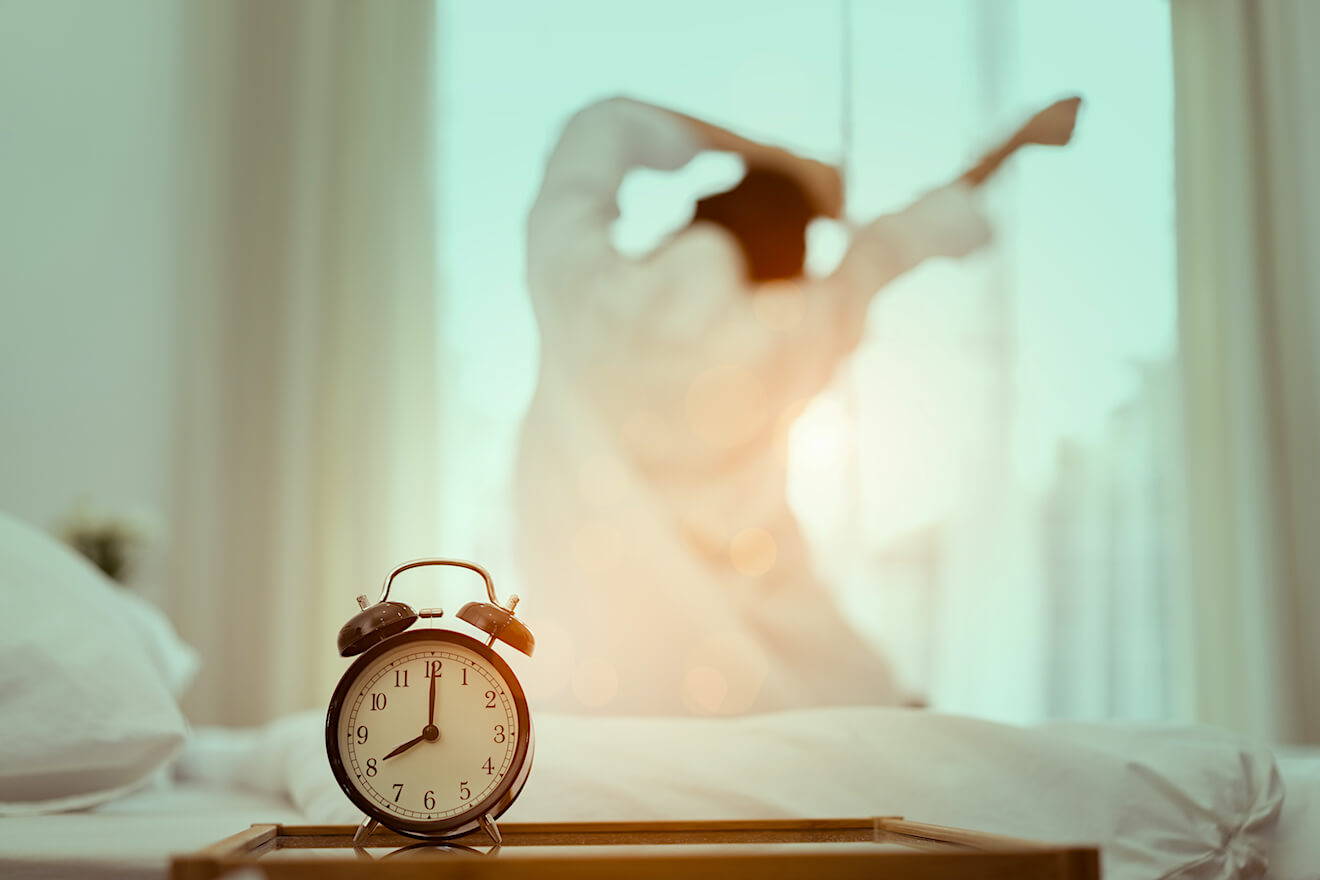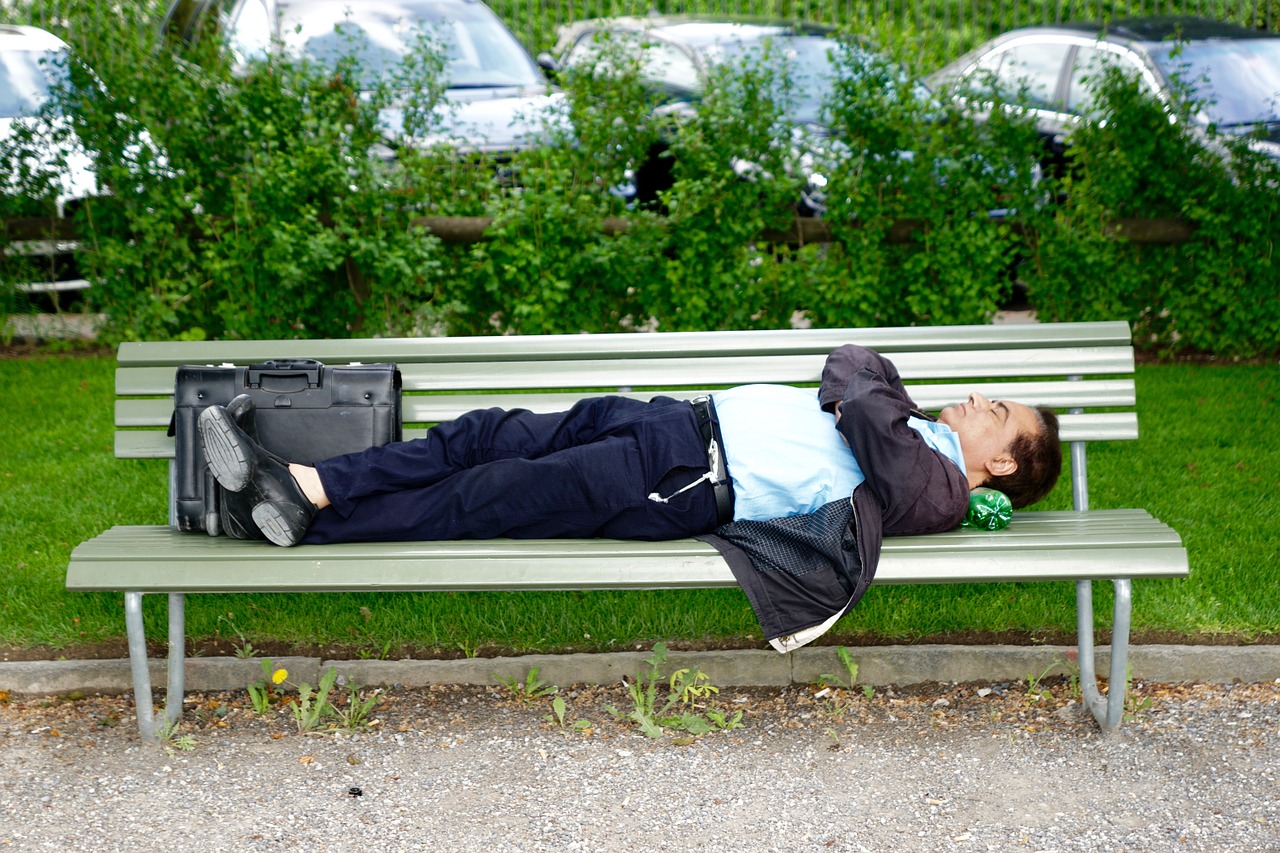Research shows there’s a strong correlation between mental well-being and sleep. We know that problematic sleeping (e.g., insomnia, sleep disturbance, insufficient sleep, sleep difficulty, sleep loss, sleep apnea, etc.) can have a significant impact on mental health, and further, certain mental health conditions can detract from your quality of sleep. Essentially, sleep and mental health is a two-way street.
Keep reading to learn more about this circular relationship and to answer the question: why is sleep important for mental health? We’re delving into how quality sleep affects certain mental health conditions and looking at ways to enhance your quality of sleep and improve mental health overall.
Why Is Sleep Important for Mental Health?
Sleep deprivation and mental health are intrinsically related. Sleeping poorly at night can cause you to feel irritable, tired, and unmotivated in the morning. A poor sleep pattern can also contribute to various adverse long-term health conditions.
According to the Centers for Disease Control and Prevention (CDC), inadequate sleep is linked to type 2 diabetes, obesity, and heart disease. The impact reaches far beyond physical ailments, though. Repetitive sleep disturbances can contribute to or exacerbate mental health issues or conditions like bipolar disorder, depression, and anxiety.
“Poor sleep patterns affect our mental health by disrupting our circadian rhythm and throwing off normal sleep stages. This can cause our brains and our emotions to be thrown off, thereby making it difficult to regulate our emotions and interrupt our judgment, which can affect our mental health.”
Talkspace therapist Reshawna Chapple
The Relationship Between Mental Health Conditions & Sleep
Why is sleep important for mental health? For one thing, we see wide fluctuations in brain activity while we sleep. The brain slows down and speeds up throughout the night, depending on what stage of sleep we’re in. Every stage plays a unique role in brain function and health. Faster or slower activity throughout different areas of the brain affects our thinking, memory, and learning.
“For individuals who have mental health conditions, not getting adequate sleep can cause your emotions to fluctuate. The fluctuation of emotions causes our body to release stress hormones which can throw off our judgment, interfere with our coping skills, and make us less mentally and physically coherent.”
Talkspace therapist Reshawna Chapple
Sleep deprivation and mental health have a clear link. We see evidence of this when focusing on a few key mental health conditions like anxiety, depression, and bipolar disorder.
Anxiety
Sleep and anxiety have a bidirectional relationship. In other words, people who live with anxiety tend to experience increased sleep disturbances, and increased sleep disturbances can intensify anxiety during waking hours. This can lead to a perpetual cycle that ultimately can have a damaging impact on mental health over time.
According to researchers at the Howard University Mental Health Clinic, “Sleep disturbances commonly are associated with anxiety disorders, in particular generalized anxiety disorder, panic disorder, and post-traumatic stress disorder. Sleep loss may exacerbate and contribute to a relapse of these conditions.”
Furthermore, many people also struggle with sleep anxiety and find themselves experiencing stress or anxiousness before bed.
Depression
What is the connection between sleep and depression? Various sleep problems have long been associated with symptoms of depression. However, recent research has implicated sleep deprivation as an actual cause of depression.
People with insomnia are at higher risk of depression, and those who live with depression are more likely to have sleep problems. Like with anxiety, the relationship between sleep and depression is a 2-directional route.
We sleep roughly one-third of our lives, and adequate sleep is essential to physiological needs, especially when it comes to mood and cognitive function. Ultimately, when our sleep is disrupted, it’s distressful and can have a negative impact on our quality of life.
Bipolar disorder
Sleep and mental health are also linked to bipolar disorder. The link, as with anxiety and depression, is again bidirectional.
According to researchers at the University of California, Berkeley, the chronic and severe mental health condition known as bipolar disorder has a strong connection to sleep disturbances. Much research confirms that sleep deprivation can be a trigger for manic episodes and relapse.
Understanding there’s a connection between sleep and certain mental health conditions is one thing. Knowing what to do about it is another. Next, we’ll look at effective tips you can use, beginning tonight, to improve your sleep and enhance your mental health.
Tips for Improving Sleep for Your Wellness
There are several ways you can focus on sleep habits, patterns, and mindset so you can get better sleep and improve your overall physical and mental well-being.
“There are several tips for getting good sleep. The first is developing a sleep schedule. If you wake up at the same time every morning and go to bed at the same time every night your body will become accustomed to that. Getting adequate sleep (like 8 hours) is very important, and avoiding stimulants such as caffeine, alcohol, or sugary or spicy foods can help you sleep through the night. Certain foods that are difficult to digest can interrupt your sleep. This is why it’s important to avoid them. Finally, participating in some sort of meditation, stretching, or yoga, or taking a warm bath or shower, can help your body relax and prepare for sleep.”
- Do some gentle stretching, breathing exercises, and mindfulness meditation before bedtime
- Diffuse calming essential oils like chamomile, lavender, and frankincense before sleeping
- Create (and stick to) a well-defined healthy bedtime routine and schedule
- Give your mind and body time to adapt to your new schedule
- Make your bed inviting with fluffed pillows, fresh sheets, and a comfortable blanket
- Avoid coffee, chocolate, and other stimulating substances before sleep
- Avoid large meals right before bed
- Play a sound machine or white noise
- Try journaling for mental health or keeping a gratitude list at night
- Repeat positive mantras like “I am going to sleep well tonight”
- Remove a TV from your bedroom
- Avoid screen time for at least one hour before going to bed
- Take an Epsom salt (magnesium sulfate) bath
According to multi-university research, ample studies have looked at the role magnesium plays in stress response. There’s substantial evidence showing magnesium is quite effective at regulating stress response, which can help you get a better night’s rest.
Make Your Mental Health a Priority With Better Sleep Habits
The links between quality sleep and mental health continue to be explored. Our bodies and brains need adequate sleep to heal and restore themselves for optimal daily function. The truth is, as a society, we’re exhausted. Learning how to put an emphasis on healthy sleep is key to being as healthy as possible.
Getting stressed out and missing a good night’s sleep here and there probably won’t cause a lot of damage. However, chronic, repetitive sleep disturbances can result in cumulative effects that can be devastating to both physical and mental health.
So, start today and take your sleep more seriously. Make sure your sleeping environment is welcoming and enjoyable. Making sleep a priority in your life is a smart move, especially if you live with chronic stress, anxiety, or depression.
While sleep is important, there’s more to preserving your mental health. Therapy, healthy habits, and coping techniques can all be helpful tools to add to your arsenal for good mental health. At Talkspace, we provide online therapy so you can talk to a licensed therapist from the comfort of your home and figure out what steps you need to take to a happier, healthier you.
Sources:
1. Sleep and Chronic Disease. Centers of Disease Control and Prevention (CDC). https://www.cdc.gov/sleep/about_sleep/chronic_disease.html. Published 2018. Accessed May 10, 2022.
2. Maquet P. Sleep on it!. Nat Neurosci. 2000;3(12):1235-1236. doi:10.1038/81750. https://www.nature.com/articles/nn1200_1235. Accessed May 10, 2022.
3. Mellman T. Sleep and Anxiety Disorders. Psychiatric Clinics of North America. 2006;29(4):1047-1058. doi:10.1016/j.psc.2006.08.005. https://pubmed.ncbi.nlm.nih.gov/17118281/. Accessed May 10, 2022.
4. Depression and Sleep: Understanding the Connection. Hopkinsmedicine.org. https://www.hopkinsmedicine.org/health/wellness-and-prevention/depression-and-sleep-understanding-the-connection. Accessed May 10, 2022.
5. Sleep Deprivation and Depression: A bi-directional association. Sultan Qaboos Univ Med. 2015;15(1):e4–e6. https://www.ncbi.nlm.nih.gov/pmc/articles/PMC4318605/. Accessed May 10, 2022.
Talkspace articles are written by experienced mental health-wellness contributors; they are grounded in scientific research and evidence-based practices. Articles are extensively reviewed by our team of clinical experts (therapists and psychiatrists of various specialties) to ensure content is accurate and on par with current industry standards.
Our goal at Talkspace is to provide the most up-to-date, valuable, and objective information on mental health-related topics in order to help readers make informed decisions.
Articles contain trusted third-party sources that are either directly linked to in the text or listed at the bottom to take readers directly to the source.




